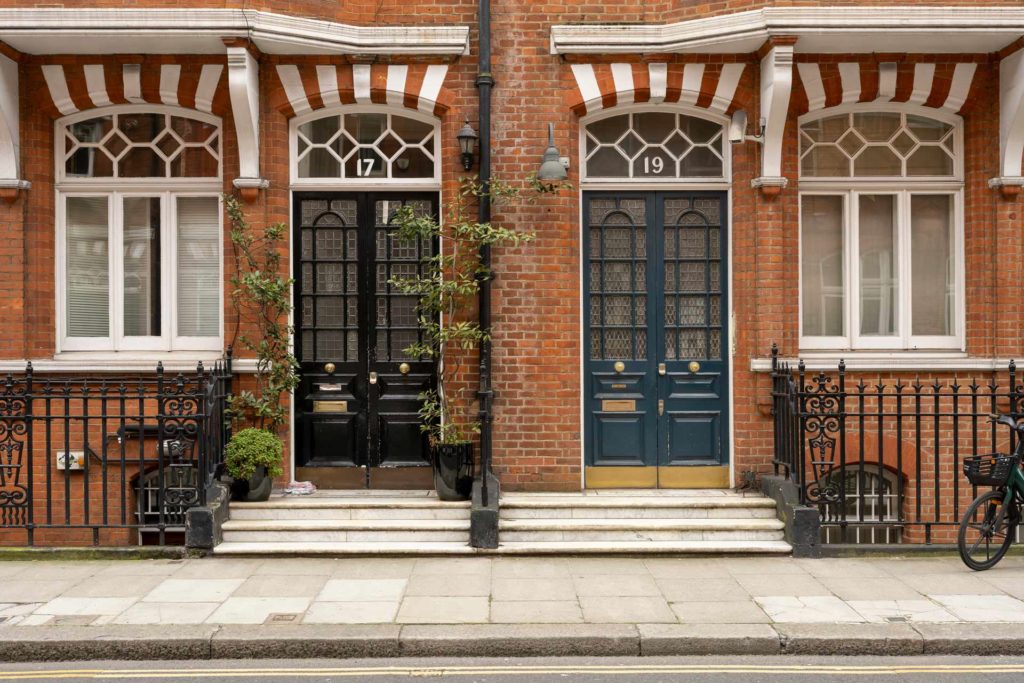Overview of the current political climate in the UK
As 2024 unfolds, the United Kingdom finds itself at a pivotal political juncture. The prevailing winds of change are sweeping across the nation, driven by a populace increasingly vocal about economic disparities, housing affordability, and social justice. The ruling Conservative Party, having steered the country through the tumultuous post-Brexit years, now faces mounting criticism over its handling of these pressing issues. The political landscape is rife with debates, protests, and an electorate seeking answers to complex challenges.
Central to these challenges is the economy, which remains delicately balanced. The UK’s departure from the European Union continues to cast long shadows over trade, immigration, and foreign investment policies. These factors converge to create a unique set of economic conditions, where uncertainty is the only certainty. Amidst this backdrop, the housing market, particularly the prime property sector, has emerged as a barometer of the nation’s economic health and social equity.
Speculation about a potential change in government
In this context, the possibility of a change in government looms large. The Labour Party, rejuvenated under new leadership and emboldened by public discontent, is positioning itself as a credible alternative to the Conservatives. Labour’s ascendancy is not merely a reaction to the current government’s policies but also a reflection of a broader desire for change among many Britons.
This political shift, should it come to pass, would not be without precedent. The UK’s history is dotted with instances where public sentiment, catalysed by economic or social issues, has led to dramatic changes in governance. The Labour Party, historically aligned with working-class interests and more progressive policies, is advocating for a transformative agenda that promises to reshape various aspects of British life, including the housing market.

Focus on the prime property market
The prime property market in the UK, particularly in London and other major cities, has long been a symbol of wealth and economic power. This sector, comprising high-value residential properties, is a magnet for both domestic and international investors. Its performance is closely watched as an indicator of the country’s economic health and investor confidence.
However, this market is not just an economic indicator; it’s also a reflection of the social and economic divides in the UK. The soaring prices and the concentration of wealth in the property sector have raised questions about housing affordability and inequality. These issues are at the heart of the political discourse, with the Labour Party advocating for policies that promise to address these disparities.
As the possibility of a Labour government becomes more tangible, stakeholders in the prime property market – from homeowners to investors – are keenly watching the potential implications. Will Labour’s policies lead to a more equitable housing market, or will they disrupt the investment landscape? Will the prime property sector continue to thrive under a Labour government, or will it face new challenges?
Background Information
Current state of the UK’s prime property market
As of 2024, the UK’s prime property market remains a dynamic and significant sector, reflective of broader economic trends and investor sentiment. This market, predominantly located in London but also encompassing other affluent areas across the country, has historically been characterised by high-value residential properties attracting a mix of domestic and international buyers. These properties are not just homes but are often seen as investment assets, influenced by factors like economic stability, currency fluctuations, and tax regimes.
Over the past few years, the prime property market has experienced a variety of shifts. Following the uncertainty caused by Brexit, there was a noticeable cooling in the market. However, it gradually regained momentum, driven by factors such as a weak pound attracting foreign investment and a general scarcity of high-quality listings maintaining upward pressure on prices.
Key policies and economic factors influencing the market under the current government
Under the current Conservative government, several policies and economic factors have played pivotal roles in shaping the prime property market. The government’s approach has largely focused on stimulating economic growth and maintaining the UK’s status as an attractive destination for foreign investment.
Key policies include adjustments to stamp duty, which have varied over the years, influencing both domestic buyers and overseas investors. The introduction of higher stamp duty rates for second homes and buy-to-let properties aimed to cool down the overheating market segments. Additionally, changes to non-resident capital gains tax rules have impacted foreign investors’ decisions.
Economic factors such as low-interest rates have also played a crucial role. The Bank of England’s monetary policy, aimed at supporting economic growth post-Brexit and during the pandemic, has kept borrowing costs low, thereby fuelling demand in the property market. Furthermore, the government’s policies on immigration and foreign investment have had indirect impacts on the prime property sector, influencing both supply and demand dynamics.

Labour Party’s historical stance on property and housing
The Labour Party, historically, has taken a markedly different approach to housing and property issues compared to the Conservatives. Labour’s policies have traditionally centred around social housing, affordability, and renters’ rights. The party has advocated for increased government intervention in the housing market to address inequalities and provide more affordable housing options.
In past tenures, Labour governments have focused on increasing the supply of social and affordable housing. They have implemented policies aimed at regulating the private rental sector more tightly, including measures to control rent increases and provide greater security to tenants. Moreover, Labour has historically been more inclined towards imposing higher taxes on luxury and high-value properties, with the intent of redistributing wealth and addressing social inequalities.
Labour’s approach to housing is often intertwined with its broader socio-economic agenda, emphasising the need for housing to be accessible and affordable to all segments of society. This stance represents a fundamental shift from viewing housing primarily as an investment vehicle to considering it a basic right.
As we look towards a potential Labour government in 2024, questions arise about how these historical stances might translate into contemporary policy and how they would impact the prime property market. Will Labour’s traditional focus on social housing and affordability lead to significant reforms in the sector, or will there be a balance to maintain the market’s attractiveness to investors?
Labour Party’s Proposed Policies and Their Potential Impact
Summary of Labour’s key housing and property policies
As the Labour Party positions itself potentially to take the reins of government in 2024, its proposed policies in the housing and property sector are of significant interest, especially given the party’s historical focus on affordable housing and social equity. Labour’s manifesto outlines a comprehensive approach that seeks to address the diverse needs of the UK’s housing market, with a particular emphasis on affordability, fairness, and sustainability.
Key policies proposed by Labour include:
- Increasing the supply of affordable housing: Labour aims to significantly boost the construction of affordable homes. This includes plans for new social housing, which are intended to provide high-quality, low-cost living options for those priced out of the private market.
- Reforming the rental sector: Proposals include strengthening tenants’ rights, implementing rent controls in certain areas, and ensuring more secure tenancies. This approach is designed to make the rental market fairer and more affordable for tenants.
- Enhanced regulation of the housing market: Labour intends to introduce stricter regulations on housing quality and safety, particularly in the wake of high-profile incidents such as the Grenfell Tower fire. This would involve tighter controls over landlords and developers.
- Tax reforms affecting property: The party has suggested changes to property-related taxes, including reforms to council tax and possibly introducing a land value tax. These changes aim to make the tax system more equitable and discourage speculative property investments.
- Support for first-time buyers: Labour has proposed measures to assist first-time buyers, such as help-to-buy schemes and possibly providing preferential access to new homes.

Analysis of how these policies could affect the prime property market
- Taxation changes:
- Labour’s proposed tax reforms, including potential changes to council tax and the introduction of a land value tax, could have significant implications for the prime property market. Higher taxes on luxury properties and second homes could lead to a cooling effect on the market, as they may deter speculative investment and reduce the attractiveness of high-value properties as investment vehicles.
- Additionally, if Labour introduces more progressive property taxation, it could lead to a redistribution of investment from prime properties to other sectors or geographies, as investors seek more tax-efficient options.
- Regulation adjustments:
- Stricter regulations on housing quality and safety could increase costs for developers and landlords in the prime property sector, potentially leading to a slowdown in new developments or renovations of existing properties.
- Enhanced tenant protections and possible rent controls, while not directly impacting the prime property market (which is less rental-focused), could indirectly influence investor sentiment. If the rental market becomes less lucrative due to these changes, there could be a knock-on effect on investment in the prime property sector.
- Affordable housing initiatives:
- Labour’s emphasis on increasing affordable housing supply could indirectly impact the prime property market. While the direct effect might be minimal, as these initiatives are typically targeted at different market segments, they could lead to a more balanced overall housing market.
- By addressing the housing affordability crisis, these initiatives might reduce the socio-economic pressures that have previously led to market distortions. This could result in a more stable property market overall, potentially benefiting the prime sector in the long run.
Economic Implications
Potential effects on property prices in prime markets
Labour’s proposed housing policies, if implemented, could have a considerable impact on property prices within the UK’s prime markets. One of the direct effects might be a cooling of the overheated prime property market. Higher taxes on luxury and high-value properties, as well as a focus on affordable housing, could decrease the demand for prime properties, leading to a stabilisation or even a decrease in their prices. This would mark a significant shift from the steadily increasing prices seen in recent years.
Moreover, the introduction of measures like a land value tax could discourage speculative investments in prime properties, as investors seek more favourable markets. This could lead to a rebalancing of property prices, potentially making prime properties less of an exclusive investment option and more accessible to a broader range of buyers.
Influence on investment trends
Labour’s housing policies could also influence broader investment trends in the UK property market. Increased taxes and regulations in the prime property sector might drive investors to explore alternative markets, such as commercial real estate or properties in emerging locations. There might also be a shift from investment in high-value properties to more affordable and mid-market segments, which could offer better returns in a more regulated market.
Additionally, foreign investment in the UK property market could be affected. Stricter regulations and higher taxes might make the UK less attractive to overseas investors, leading to a reduction in foreign capital inflow into the prime property market. This could have a ripple effect on related sectors like construction, real estate services, and local economies dependent on property development and high-net-worth residents.
Forecast for economic growth and stability in relation to the property market
The overall impact of Labour’s housing policies on economic growth and stability would likely be complex. While a cooling of the prime property market might initially seem detrimental to economic growth, it could lead to a more sustainable and balanced property market in the long term. Reducing the emphasis on property as an investment vehicle could also divert capital into productive economic sectors, potentially fostering broader economic growth.
However, there are risks involved. A sudden or drastic decrease in property prices could have adverse effects on homeowners’ equity and the wider economy. It is crucial for any policy changes to be implemented gradually and with careful consideration of their broader economic implications.

Social and Political Considerations
How Labour’s policies might address housing inequality
Labour’s focus on affordable housing and tenant rights is primarily aimed at addressing the significant issue of housing inequality in the UK. By increasing the supply of affordable housing and implementing measures to protect tenants, Labour’s policies could help bridge the gap between the wealthy and less affluent segments of the population. This could lead to a more equitable distribution of housing resources and improve living conditions for those who have been priced out of the housing market.
Public perception and potential political challenges
The success of Labour’s housing policies would largely depend on public perception and political will. While the policies might be popular among those struggling with housing affordability, they could face opposition from property investors, landlords, and affluent homeowners who might perceive these policies as detrimental to their interests. Labour would need to navigate these conflicting interests carefully and build a consensus around the need for a more equitable housing market.
International comparisons and lessons
Looking internationally, there are lessons to be learned from other countries that have implemented similar housing policies. For example, some European countries with strict rent control and tenant protection laws have managed to create more stable and equitable housing markets. However, these policies have also sometimes led to unintended consequences, such as reduced investment in property maintenance and a shortage of rental properties. Labour could benefit from studying these international examples to refine its policies and avoid potential pitfalls.
Impact on Stakeholders
Homeowners in prime property areas
Homeowners in the UK’s prime property areas are likely to experience a significant impact under Labour’s proposed housing policies. With potential changes in taxation and regulation, the value of prime properties may stabilise or even decrease, affecting the wealth and asset value of these homeowners. For those who view their property primarily as an investment, this could lead to a reassessment of their assets’ long-term value. However, for those who see their property primarily as a home, these changes might not have a substantial immediate impact, apart from possible increases in property-related taxes.
Moreover, increased regulation and stricter housing quality standards could require homeowners to invest more in property maintenance and upgrades, potentially leading to higher costs. On the other hand, a more stable and equitable housing market could benefit the broader community, including prime property areas, by fostering a more balanced and sustainable urban development.
Real estate investors and developers
The impact on real estate investors and developers could be more pronounced. Labour’s focus on affordability and regulation might lead to decreased profitability in the prime property market, as higher taxes and tighter regulations could increase costs and reduce returns on investment. This could lead to a shift in investment strategies, with investors potentially moving their focus to other markets or property types.
Developers might face challenges due to stricter regulations and a potential decrease in demand for luxury properties. This could lead to a slowdown in new high-end developments and a shift towards more affordable housing projects, in line with Labour’s emphasis on increasing the supply of such housing.
First-time homebuyers and lower-income groups
First-time homebuyers and lower-income groups stand to benefit the most from Labour’s housing policies. Increased availability of affordable housing and support for first-time buyers could make it easier for these groups to enter the property market. Measures like rent controls and enhanced tenant rights could provide much-needed relief for lower-income renters, improving their living conditions and financial stability.
Overall, Labour’s policies could lead to a more inclusive housing market, though this would depend on the effective implementation and management of these policies.

Potential Scenarios and Outcomes
Best-case scenario for the prime property market under Labour
In the best-case scenario, Labour’s policies lead to a more balanced and sustainable property market. The prime property sector experiences a moderate cooling, resulting in more stable prices that benefit the broader economy. The increased focus on affordable housing leads to a significant boost in the availability of such housing, addressing the issue of housing inequality. The overall property market becomes more equitable, and the economy benefits from a more balanced distribution of wealth and investment.
Worst-case scenario and associated risks
In the worst-case scenario, Labour’s policies lead to a sharp decline in prime property values, causing a negative ripple effect throughout the economy. Over-regulation and high taxes could discourage investment in the property market, leading to a slowdown in new developments and negatively impacting related industries. This could result in economic instability and a loss of confidence among both domestic and international investors.
Most likely outcomes based on current data and trends
Based on current data and trends, the most likely outcome is a moderate adjustment in the prime property market. Labour’s policies might lead to some cooling in the market, but with careful implementation and a focus on balancing regulation with market dynamics, the market could adjust without severe disruption. The increase in affordable housing and support for first-time buyers could positively impact the broader housing market, leading to a more inclusive and sustainable property sector.
Summary of potential impacts
The potential ascent of a Labour government in 2024 could herald significant changes for the UK’s prime property market. Based on Labour’s proposed policies, key impacts could include a cooling of the overheated prime property market, a shift in investment trends, and a more equitable distribution of housing resources. For homeowners in prime areas, this may mean a stabilisation or slight decrease in property values and potentially higher property-related taxes. Real estate investors and developers could face decreased profitability and may need to adjust their investment strategies. However, the policies could be greatly beneficial for first-time homebuyers and lower-income groups, providing them with more opportunities to access affordable housing and improving their living conditions.
Final thoughts on the resilience and adaptability of the UK’s prime property market
The UK’s prime property market has historically demonstrated remarkable resilience and adaptability. It has weathered various economic and political changes, including the aftermath of Brexit and the COVID-19 pandemic. While Labour’s policies could introduce new challenges, the market’s inherent strength and the adaptability of its stakeholders suggest that it could adjust to these changes over time. Moreover, a potential shift towards a more balanced and sustainable market could have long-term benefits, contributing to the overall health and stability of the UK’s economy.

Recommendations for stakeholders to prepare for possible changes
- Staying Informed: All stakeholders, including homeowners, investors, and developers, should stay informed about policy changes and market trends. This knowledge will be crucial in making informed decisions and adapting strategies accordingly.
- Engaging with Policy Makers: It’s important for stakeholders, especially those in the real estate industry, to engage with policymakers. Constructive dialogue can help in shaping policies that are effective yet considerate of the market’s dynamics.
- Preparation for Regulatory Changes: Developers and investors should prepare for potential regulatory changes by focusing on sustainability and affordability in their projects.
- Exploring New Opportunities: Changes in the market often bring new opportunities. Stakeholders should be open to exploring new avenues, such as affordable housing projects or emerging market segments.
Is it possible for prime property owners in London to experience positive outcomes following a shift in government to Labour?
The potential change in government to Labour in the UK could indeed bring about positive changes for prime property owners in London, although these benefits might not be immediately obvious given Labour’s traditional focus on affordable housing and wealth redistribution. Here are some ways in which prime property owners in London could experience positive changes:
- Market Stabilisation: Labour’s policies aimed at cooling an overheated market could lead to greater stability in the long run. While this might mean a slowdown in the rapid price increases seen in recent years, it also reduces the risk of a property bubble and subsequent crash, which could be beneficial for long-term investors.
- Improved Infrastructure and Services: Labour governments have historically focused on improving public services and infrastructure. Enhancements in transportation, education, and healthcare can increase the desirability and hence the value of properties in well-serviced areas.
- Increased Rental Demand: If Labour’s policies successfully address the issue of housing affordability and increase the stock of affordable housing, there could be a resultant increase in the general population’s purchasing power. This could lead to a rise in demand for rental properties, including those in the prime segments, as more people move to the city for opportunities.
- Social Stability and Economic Growth: Policies that address income inequality and housing affordability can lead to greater social stability. A more equitable society often correlates with healthier, more robust economic growth, which can benefit property markets, including prime sectors.
- Enhanced International Reputation: A government that is seen to be addressing social inequalities and focusing on sustainability could improve the UK’s international reputation. This might attract foreign investors who are interested in markets that are stable and socially responsible.
- Long-term Investment Opportunities: Changes in the market might open new long-term investment opportunities for prime property owners, such as in emerging areas or in different types of property, like environmentally sustainable buildings.
while Labour’s policies might initially seem geared towards affecting the prime property market negatively, there are scenarios where these policies could lead to indirect benefits for prime property owners in London. Much depends on the specific policies adopted, their implementation, and the overall economic environment.